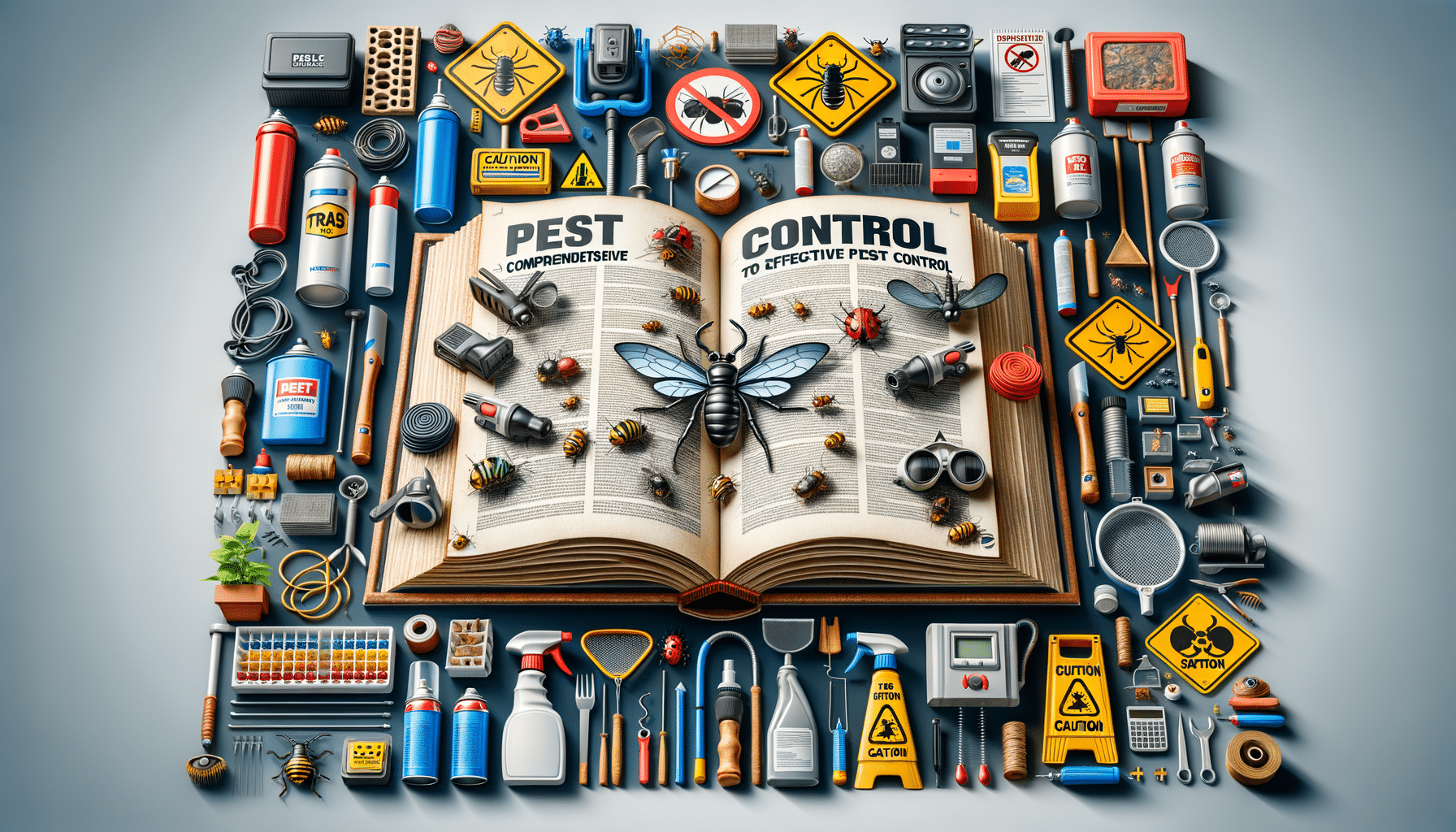
Comprehensive Guide to Effective Pest Control
Understanding the Importance of Pest Control
Pest control is a critical aspect of maintaining a healthy and comfortable living environment. Unwanted pests such as insects, rodents, and other creatures can cause significant damage to property, spread diseases, and create an uncomfortable atmosphere in homes and businesses. Understanding the importance of pest control helps in recognizing the potential risks posed by these invaders and the necessity of implementing effective measures to manage them.
Pests can have a profound impact on health, as they are known carriers of various diseases. For instance, rodents can transmit hantavirus, while mosquitoes are notorious for spreading malaria and dengue fever. Moreover, pests such as termites can cause substantial structural damage to buildings, leading to costly repairs. Therefore, effective pest control is not only about comfort but also about safeguarding health and property.
Effective pest control involves a combination of preventive measures and targeted treatments to eliminate existing infestations. This approach ensures that pests are not only removed but also discouraged from returning. By understanding the importance of pest control, individuals and businesses can take proactive steps to protect their environments from the adverse effects of pests.
Common Types of Pests and Their Impact
Identifying the types of pests that commonly invade homes and businesses is crucial in developing an effective pest control strategy. Some of the most common pests include:
- Rodents: Mice and rats are notorious for contaminating food supplies and spreading diseases.
- Insects: Cockroaches, ants, and termites are among the most prevalent insects that can cause damage and health issues.
- Birds: Certain bird species can create noise, mess, and structural damage to buildings.
Each type of pest brings its unique challenges. For instance, termites can silently destroy wooden structures, leading to severe damage before they are even detected. Cockroaches, on the other hand, can spread bacteria and allergens, posing health risks, especially to children and individuals with respiratory conditions.
Understanding the impact of these pests helps in prioritizing control measures. For instance, while rodents might require immediate attention due to their rapid reproduction rate and disease potential, termites might necessitate regular inspections to prevent long-term structural damage.
Preventive Measures for Pest Control
Prevention is always better than cure, and this holds true for pest control. Implementing preventive measures can significantly reduce the likelihood of pest infestations. Here are some effective strategies:
- Regular Cleaning: Maintaining cleanliness, especially in kitchens and storage areas, can deter pests from seeking food and shelter.
- Sealing Entry Points: Inspecting and sealing gaps, cracks, and openings in walls, doors, and windows can prevent pests from entering.
- Proper Waste Management: Ensuring that waste is disposed of promptly and stored in sealed containers can minimize attraction to pests.
In addition to these measures, regular inspections by pest control professionals can help identify potential issues before they become significant problems. These experts can provide tailored advice and solutions based on the specific pest challenges faced by a property.
By focusing on prevention, individuals and businesses can save time, money, and resources while maintaining a pest-free environment.
Choosing the Right Pest Control Methods
When it comes to pest control, selecting the appropriate methods is crucial for effective management. There are various options available, ranging from chemical treatments to natural remedies. Here are some considerations:
- Chemical Treatments: These are often used for severe infestations and include pesticides and insecticides. It’s essential to follow safety guidelines to minimize risks to humans and pets.
- Natural Remedies: For those looking for eco-friendly solutions, natural remedies such as essential oils, vinegar, and diatomaceous earth can be effective against certain pests.
- Professional Services: Hiring pest control professionals ensures that the most effective and safe methods are used, tailored to the specific pest problem.
Each method has its pros and cons, and the choice often depends on the severity of the infestation, the type of pest, and personal preferences. For instance, while chemical treatments might offer quick results, natural remedies are suitable for those concerned about environmental impact.
Ultimately, combining different methods and seeking professional advice can lead to a comprehensive pest control strategy that effectively manages and prevents infestations.
Conclusion: Maintaining a Pest-Free Environment
Maintaining a pest-free environment requires a proactive approach that combines prevention, timely intervention, and the right pest control methods. By understanding the importance of pest control and the impact of different pests, individuals and businesses can implement effective strategies to protect their health and property.
The key to successful pest control lies in regular monitoring and adapting methods as needed. With the right knowledge and tools, managing pests becomes a manageable task, ensuring comfort and safety in any environment.
By prioritizing pest control, we not only safeguard our immediate surroundings but also contribute to a healthier and more sustainable world.


